IIAR Announces Regulatory Initiatives
CYBER SECURITY CONSIDERATIONS
Randel told attendees that the risks of cyberattacks are increasing, and DHS is encouraging companies of all sizes to be vigilant. Resources are available at: https://www.cisa.gov/shields-up.
DHS VOLUNTARY CHEMICAL SECURITY PROGRAM
DHS has developed the ChemLock program to help non-regulated facilities improve chemical security. CFATS covers facilities with 10,000+ pounds. While there are no regulatory requirements below the threshold, security is still an important consideration.
OSHA ETS UPDATE
The Biden Administration released an Emergency Temporary Standard in 2021 that would require companies with 100 or more employees to mandate vaccinations or weekly testing for all employees. The ETS was challenged in court and the case moved to Supreme Court, which reinstituted a stay on the ETS stating concerns that it exceeds OSHA’s authority. The court said the Administration likely didn’t have the unilateral power to impose a mandate that employers ensure their workers were vaccinated or tested every week for Covid-19.
OSHA has since withdrawn the ETS, but it has indicated it still plans to pursue a permanent standard and remains intent on enforcing COVID protections in the workplace. As a result, employers need to have a written COVID Prevention and Control Plan in place.
Measures for reducing COVID-19 in the workplace include encouraging vaccinations through training/posters, providing quality face coverings, continuing to physically distance workstations, training employees on COVID-19 policy, removing COVID-19 positive or symptomatic employees away from the workplace, and providing COVID-19 testing.
Employers can still require testing or vaccination, but they must provide exemptions for disabilities and sincerely held religious beliefs and need to be aware of state and local laws. Additionally, employers must ensure that COVID-19 vaccination records are kept confidential and stored properly under ADA.
PSM RULEMAKING ON OSHA REGULATORY AGENDA
The rulemaking entitled “Process Safety Management and Prevention of Major Chemical Accidents” started during the Obama Administration. It was paused during the Trump Administration but never removed from the agenda. Recently, it moved from “Long-term Agenda” to “Pre-rule Stage.” This indicates a likely stakeholder meeting in 2022 followed by a Proposed Rule.
OSHA TRAINING
IIAR, GCCA, and IRC continue to work with OSHA to provide ammonia refrigeration training to OSHA personnel. Recently, the web-based class met over five live two-hour sessions in April and was able to reach approximately 40 agency representatives from across the country. OSHA has expressed interest in conducting additional training in the future.
OSHA LITIGATION ON EMERGENCY RESPONSE
IIAR joined with GCCA, the National Association of Manufacturers, and Edison Electric Institute in filing an amicus brief in a lawsuit between OSHA and the Tampa Electric Company (TECO). OSHA cited TECO related to its emergency response procedures, which raises significant concerns for the natural refrigerant industry.
The Amicus brief asserts that OSHA is ignoring its past letters of interpretation regarding emergency response operations. The brief also stated that OSHA has for decades taken two positions upon which industry has heavily relied: first, that the term “immediate release area” can be the entire geographic boundary of an employee’s assigned work area; and second, that emergency response requirements cannot be reduced to a simple formula, such as whether a responding employee is close enough (or not close enough) to witness a particular occurrence.
OSHA’s position not only threatens to upend years of reasonable industry reliance on positions announced by OSHA but will detract from safety.
RMP RULEMAKING ON REGULATORY AGENDA
EPA held two listening sessions to provide interested persons the opportunity to present information, comments, or views pertaining to the review of RMP regulation revisions completed since 2017, including the 2017 Final Amendments to the RMP Rule and 2019 Final RMP Reconsideration Rule).
IIAR participated in these listening sessions and suggested the recently finalized reconsideration rule took appropriate action and that no further rulemaking is needed. There have been indications that EPA may consider further changes to the RMP program, potentially reversing the actions taken during the Trump Administration. According to the regulatory agenda EPA is expected to issue a Notice of Proposed Rulemaking in September 2022 and complete a Final Rule by August 2023.
EPA POLICY ON UPDATED RAGAGEP EPA
EPA expects owners and operators to regularly review new and updated RAGAGEP applicable to their industry to determine where safety gaps exist within their current process. If the updated document explicitly provides that new clauses or requirements are retroactive, those updates are relevant to determining whether the owner or operator’s practice continues to conform to RAGAGEP.
This applies to IIAR-9: Minimum System Safety Requirements for Existing ClosedCircuit Ammonia Refrigeration Systems.
AMERICAN INNOVATION AND MANUFACTURING ACT
The American Innovation and Manufacturing (AIM) Act passed in December 2020 and provides EPA new authorities to address HFCs in three main areas: phasing down production and consumption, maximizing reclamation and minimizing releases, and restricting the use of HFCs in particular sectors or subsectors.
EPA moved to implement the statute, including rulemaking in 2021 that set the HFC baseline and schedule for phasing down consumption. The next step of the process will be establishing rules for various sectors and uses of HFCs. IIAR, along with RETA and ASTI, submitted a petition to EPA in 2021 suggesting policies for phasing down HFC use in refrigeration.
Additionally, the petition calls for EPA to restrict the use of refrigerants equal to or greater than 150 GWP for all refrigeration sector end-use/subsectors.
KIGALI AMENDMENT
The Biden administration is taking steps to have the U.S. join over 120 other nations in pledging to scale down the use of hydrofluorocarbons (HFCs), widely used in refrigeration and comfort cooling. President Joe Biden sent the Senate the Kigali Amendment to the Montreal Protocol on Tuesday, November 16, 2021, clearing the way for the chamber’s review of that international pact to phase down the production and consumption of HFCs. However, with the enactment of the AIM Act, ratification of Kigali will be largely symbolic.













